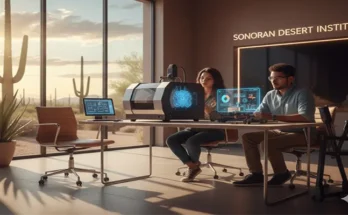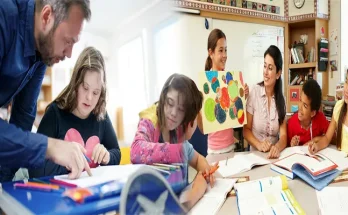In the digital age, where technology plays a crucial role in shaping how we learn and interact, gamification has emerged as a powerful tool to enhance student engagement and improve retention in educational settings. By integrating game elements such as competition, rewards, and interactive challenges into the learning process, educators are transforming traditional classroom experiences into dynamic and immersive environments that captivate students’ attention and drive their motivation to learn. Let’s explore how gamification is revolutionizing education and its impact on enhancing engagement and retention among students.
Engaging Learning Experiences
One of the key benefits of incorporating gamification into education is its ability to create engaging and interactive learning experiences. By integrating game mechanics such as points, levels, badges, and leaderboards, educators can capture students’ interest and encourage active participation in the learning process. Gamified activities stimulate curiosity, foster a sense of excitement, and motivate students to overcome challenges, making learning more enjoyable and rewarding.
Personalized Learning Paths
Gamification allows for personalized learning paths tailored to individual students’ needs and learning styles. By incorporating adaptive game elements that adjust difficulty levels, content, and pace based on students’ performance and progress, educators can provide targeted support and scaffolding to help students achieve their learning goals. This personalized approach enhances students’ engagement by ensuring that the content is relevant, challenging, and meaningful to their learning journey.
Immediate Feedback and Progress Tracking
Gamification in education provides immediate feedback and progress tracking mechanisms that enable students to monitor their performance in real time. Game elements such as instant feedback on quiz answers, visual progress indicators, and performance analytics empower students to assess their understanding, identify areas for improvement, and track their learning progress. This feedback loop enhances students’ motivation by instilling a sense of accomplishment and guiding them towards continuous improvement.
Collaboration and Social Learning
Gamification fosters collaboration and social learning by creating opportunities for students to engage with peers, work together on challenges, and participate in group activities. Multiplayer games, team-based competitions, and collaborative quests encourage students to communicate, share ideas, and leverage each other’s strengths to achieve common goals. By promoting teamwork and community building, gamification enhances students’ social interactions, communication skills, and sense of belonging within the learning environment.
Sustained Motivation and Retention
One of the most significant impacts of gamification in education is its ability to sustain students’ motivation and improve retention rates. By incorporating elements of intrinsic motivation, such as autonomy, mastery, and purpose, gamified learning experiences inspire students to take ownership of their learning, strive for mastery, and connect their efforts to meaningful outcomes. This intrinsic motivation leads to increased engagement, persistence, and retention of knowledge, ensuring that students remain actively involved in the learning process over time.
Real-World Application and Transferable Skills
Gamification in education enhances students’ learning experiences by providing real-world application opportunities and fostering the development of transferable skills. Game-based simulations, role-playing scenarios, and interactive challenges enable students to apply theoretical knowledge in practical contexts, solve authentic problems, and develop critical thinking, decision-making, and problem-solving skills. By bridging the gap between theory and practice, gamification equips students with the competencies and skills needed to succeed in a rapidly evolving and complex world.
Gamification is a powerful and innovative approach to enhancing engagement and retention in education. By creating engaging learning experiences, personalized learning paths, immediate feedback mechanisms, collaboration opportunities, sustained motivation, and real-world application, gamification transforms traditional classroom environments into dynamic and immersive learning spaces that empower students to thrive and succeed. As educators continue to embrace gamification as a valuable educational tool, its potential to revolutionize learning and inspire a new generation of learners remains unparalleled.





